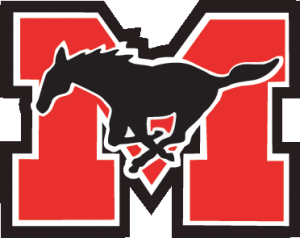In an effort to further address concerns raised by some citizens during the past months’ budget deliberations about “transparency” issues, the Falls Church School Board received a report from its chief financial officer Hunter Kimble at its meeting Tuesday night that detailed how independent audits of the Schools’, the City’s and the F.C. Economic Development Authority’s (EDA) accounts are conducted on an annual basis by the outside auditing firm of Brown, Edwards.
The audits are performed under the guidelines of a Comprehensive Annual Financial Report (CAFR) governed by Virginia’s Governing Accounting Standards Board.
During the recent contentious School Board budget deliberations, when the board was tasked with finding almost $1 million in cuts below the request it had made to the City Council, some citizens assailed what they termed a “lack of transparency” on budget matters by the board, even including the allegations by some that the schools are hiding from the public a $1.5 million “slush fund.” There were many calls for an “independent audit.”
But such independent audits are a matter of routine policy for the schools and the City government, alike, it turns out, as Kimble’s report this week detailed.
According to Kimble’s report, the Independent Auditor’s Report, as found on Page One of the CAFR, includes the following passage: “An audit involves performing procedures to obtain audit evidence about the amounts and disclosures in the financial statements (of the City, the Schools and the EDA – ed.). The procedures selected depend on the auditor’s judgment…The auditor considers internal control relevant to the entity’s preparation and fair presentation of the financial statements in order to design audit procedures that are appropriate in the circumstances.”
Citing Brown, Edwards, the Kimble report quoted, “Some procedures that we perform during our audit include: confirm cash and investment accounts and debt balances, determine appropriateness of accounts receivable, accounts payable and other accounts, test significant capital asset additions and depreciation, perform analytical review of various accounts, including revenues and expenditures (analytical procedures consist of comparing current year expenditures to prior year and budget expenditures and obtaining explanations for variances over a pre-established threshold, and communicate with legal counsel.”
Kimble explained to the School Board Tuesday that the independent auditors are “on site” in Falls Church twice a year, and will come this month for preliminary audit work that includes a review of all School Board, City Council and EDA minutes.
They return in the fall once “the books have been closed out for the fiscal year” (which in Falls Church runs from July 1 to June 30).
“When they come they really put us through our paces,” Kimble said. “It is a rigorous process that keeps us on our toes.” But far from how it used to be, he said, now when the auditors come they are viewed by School staff not with trepidation, but “as a great resource for us” offering an assessment “on how we are doing our job and helping us to improve.”
The auditors apply the same process to the City and the EDA, he said, going back and forth between the entities when they are here.
School Board member Phil Reitinger suggested that suggestions for action included in the auditor reports be made available to the School Board, and acting School Board chair John Lawrence noted that all the audit reports are public, available on the City’s financial matters section of its general government website, including all CAFR reports going back to when they were first introduced.
Brown, Edwards noted, as Kimble included in his report, that they provide a “management letter” in addition to the Comprehensive Annual Financial Report and submits “agreed upon procedures reports on the Comparative Report Transmittal forms,” along with a letter to “those charged with governance,” and a certification of the Data Collection form for federal awards.










